Home
Tableaux Vivants da Caravaggio
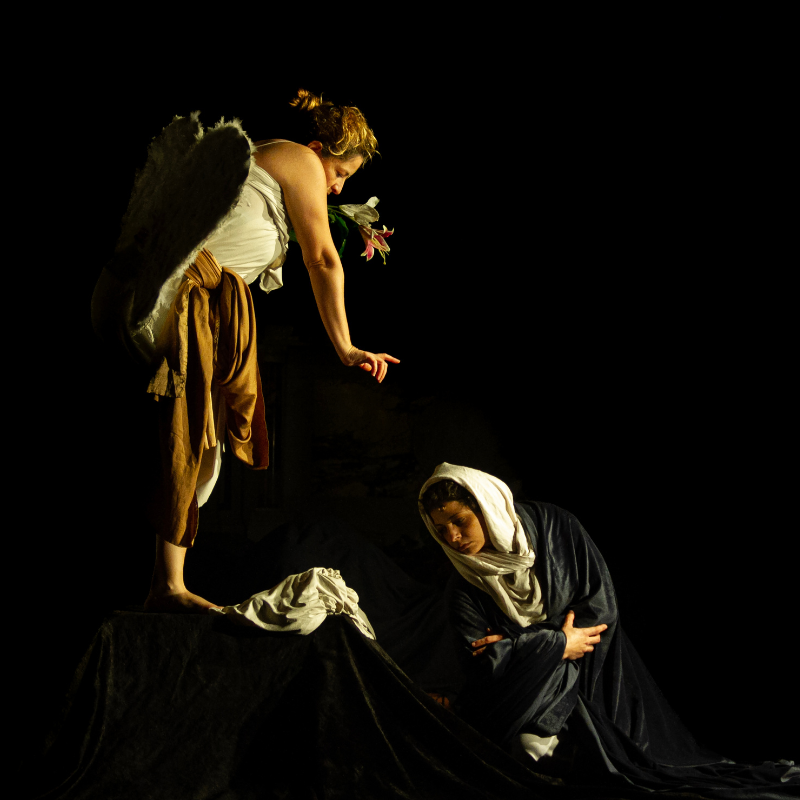
- Immagine condivisione Facebook:
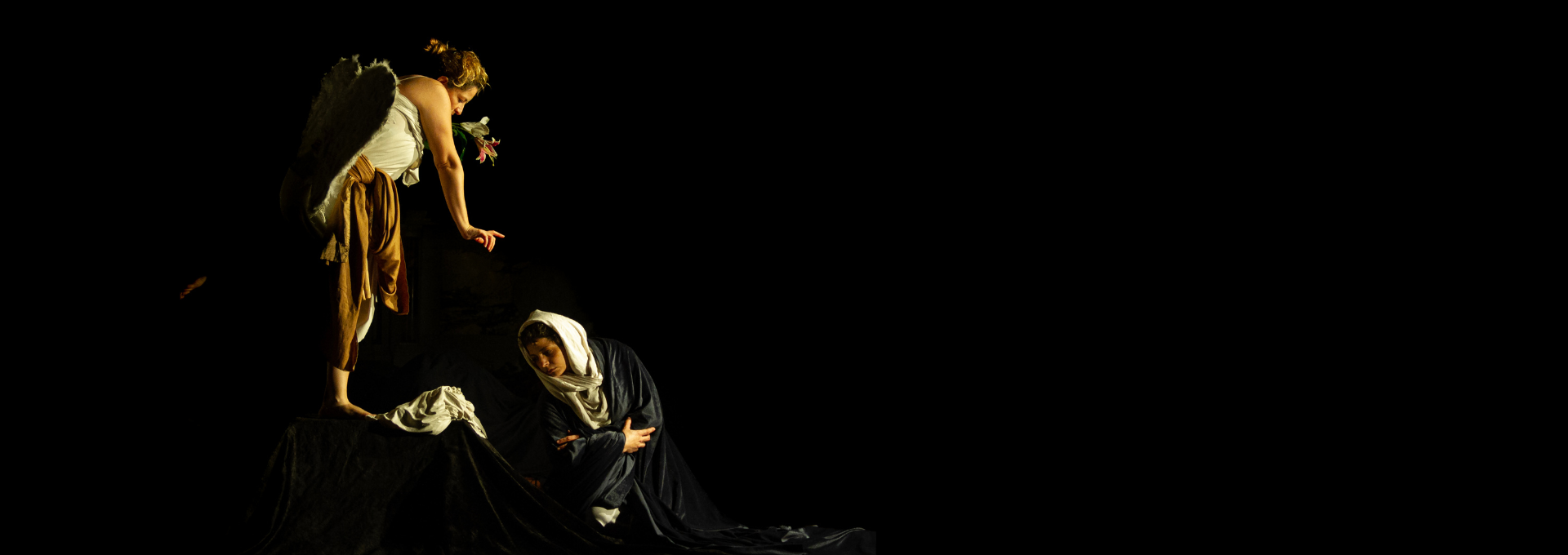
photo credits M. Rodriguez
Comporre e scomporre un’opera d’arte frutto del lavoro corale e appassionato di un gruppo di persone è l’elemento che accomuna la tecnica settecentesca dei Tableaux Vivants e la lunga tradizione del carro trionfale della Madonna della Bruna. Nell’ambito delle celebrazioni della 634° edizione della Festa della Bruna, insieme all’Associazione Maria SS della Bruna e in collaborazione con il Museo nazionale di Matera, presentiamo lo spettacolo Tableaux Vivants da Caravaggio in scena sabato 8 luglio alle 21:00 nel cortile dell’Ex Ospedale di San Rocco, per la regia di Dora De Maio in collaborazione con Mauro Milanese.
Lo spettacolo rappresenta l’esito del laboratorio teatrale “L’ombra e la grazia. Ricreare quadri per abitare corpi” realizzato nel mese di giugno dalla Compagnia Ludovica Rambelli, cui hanno preso parte 14 cittadini che hanno risposto alla nostra chiamata pubblica. Un gruppo eterogeneo, composto da giovani e meno giovani fra lavoratori, studenti, pensionati, provenienti da Matera e della provincia di Bari, alcuni già protagonisti, altri alla prima esperienza nelle progettualità di partecipazione attiva durante Matera Capitale europea della cultura 2019, si è messo in gioco a livello fisico e mentale, per entrare in relazione profonda con l’altro e lavorare insieme alla ricostruzione umana delle tele del Caravaggio.
Lo spettacolo prevede la composizione dal vivo di 26 fra i più celebri quadri dell’artista, fra cui la Deposizione, la Morte della Vergine, la Madonna dei Pellegrini, il martirio di Santa Lucia, realizzati sia dai cittadini coinvolti nel laboratorio, sia dagli attori professionisti della Compagnia Ludovica Rambelli, famosa per la tecnica dei Tableaux Vivants. Sulle note dei più celebri compositori di musica classica come Mozart e Bach, arte pittorica e arte teatrale si sovrappongono gradatamente fino a coincidere in maniera perfetta.
L’ingresso allo spettacolo Tableaux Vivants da Caravaggio è gratuito e libero, fino ad esaurimento dei posti disponibili.
Tableaux vivants per la Festa della Bruna 2023 / Il video racconto
Chiamata pubblica per i cittadini. Tableaux vivants per la Festa della Bruna 2023
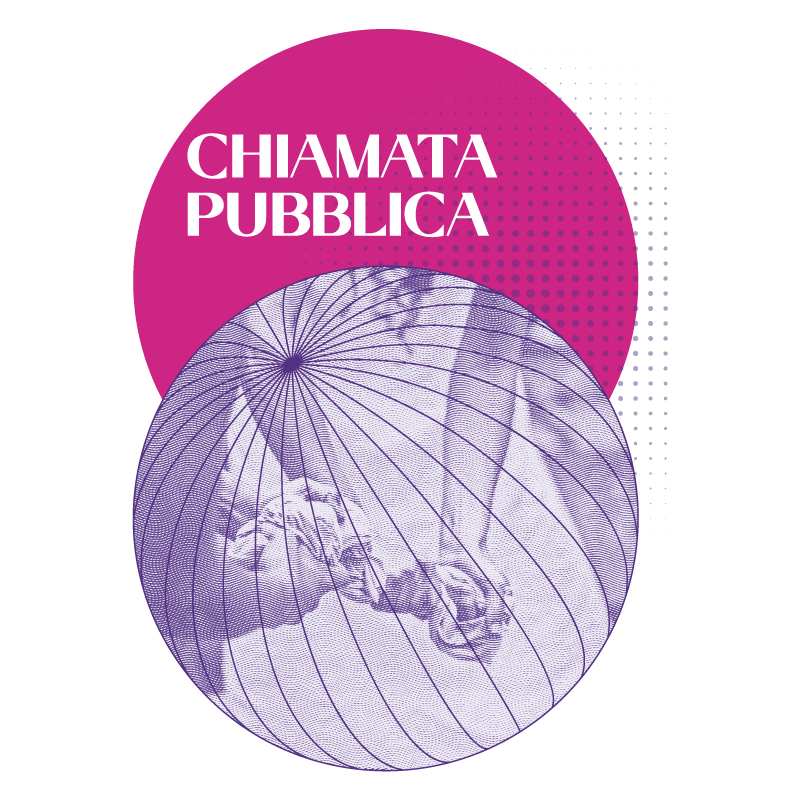
- Immagine condivisione Facebook:
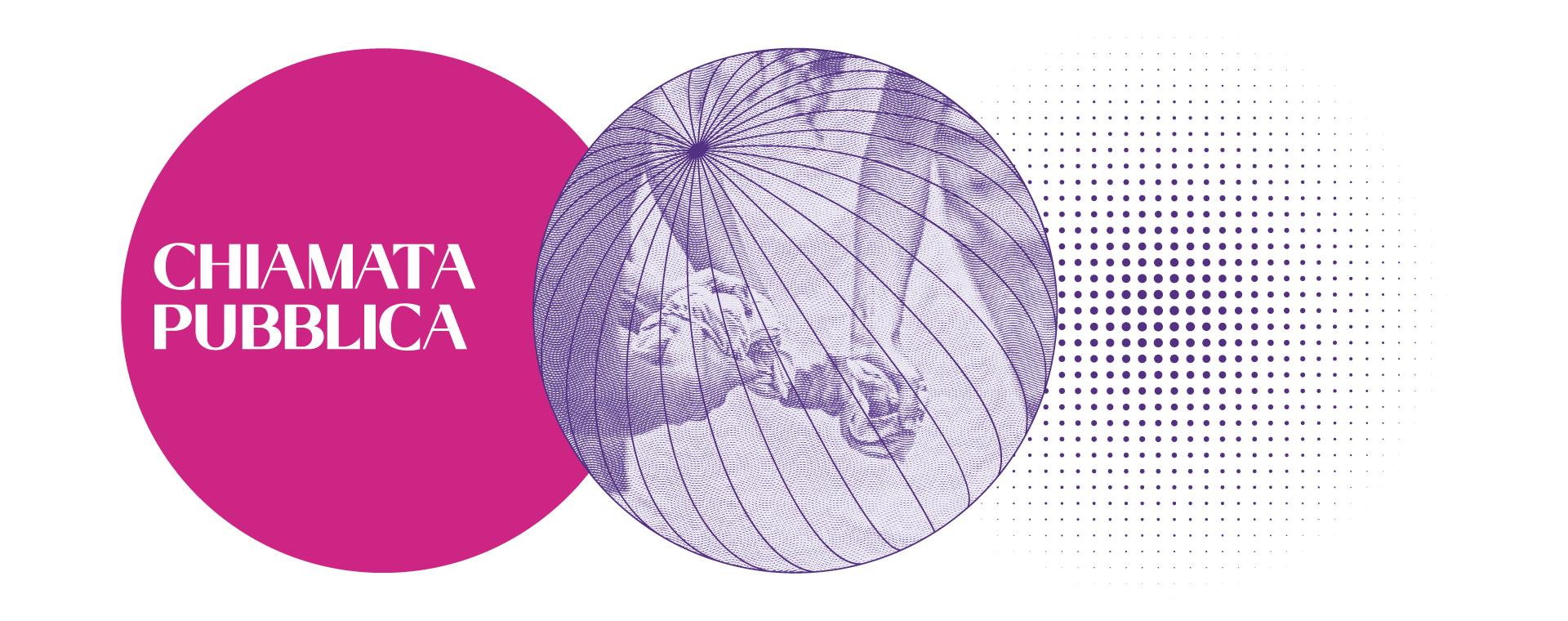
Partecipazione dei cittadini e valorizzazione della tradizione attraverso le arti e la sperimentazione sono gli elementi caratterizzanti il nostro nuovo progetto con l’associazione Maria SS della Bruna, con cui anche quest’anno rinnoviamo la lunga collaborazione per la festa della Madonna della Bruna.
Cittadini permanenti e temporanei sono chiamati a prendere parte, nel mese di giugno, al laboratorio teatrale intensivo “L’ombra e la grazia. Ricreare quadri per abitare corpi” guidati dalla Compagnia Ludovica Rambelli Teatro per la realizzazione dello spettacolo Tableaux Vivants da Caravaggio che andrà in scena l’8 luglio nell'ex ospedale di San Rocco alle ore 21:00 per la regia di Dora De Maio.
Lo spettacolo dei tableaux vivants raccoglie al suo interno sia la componente artistica sia quella religiosa: nei quadri plastici si fondono infatti pittura, fotografia, teatro, musica e linguaggio del corpo, restituendo nelle immagini rappresentante sul palco le scene ispirate al Vangelo e alla Bibbia. Obiettivo condiviso con l’Associazione è infatti la valorizzazione della Festa della Bruna con l’allargamento del programma culturale ad essa connesso, facendo emergere la dimensione comunitaria, religiosa e artistica, partecipata e inclusiva, creando al contempo un’offerta turistico-culturale.
CHI PUÒ PARTECIPARE
Al laboratorio potranno prendere parte 15 cittadini fra i 16 e i 65 anni. Non è richiesto nessun tipo di esperienza precedente, né di danza né di teatro, ma solo un ottimo stato di salute fisica e un’attitudine al lavoro corporeo.
Il laboratorio è strutturato in due fasi: la prima prevede un training fisico utile a sviluppare il ritmo, la gestualità, l’uso degli equilibri, la relazione con lo spazio, l'autocontrollo e la relazione armonica all’interno del gruppo di lavoro. Nella seconda sono previste elaborazioni di partiture di improvvisazioni, e la costruzione di tableaux vivants su Caravaggio.
L’impegno richiesto è di 6 ore al giorno nel fine settimana, dalle 10:00 alle 13:00 e dalle 14:00 alle 17:00, secondo il seguente calendario: venerdì 2 e sabato 3 giugno, venerdì 9 e sabato 10 giugno, sabato 17 e domenica 18 giugno, sabato 24 e domenica 25 giugno.
COME PARTECIPARE
Il laboratorio si svolgerà a Matera nell’auditorium della parrocchia di Cristo Re (Via Antonio Gramsci, 11).
Per partecipare è necessario inviare una mail all’indirizzo This email address is being protected from spambots. You need JavaScript enabled to view it. entro lunedì 29 maggio ore 12:00, specificando nome, cognome, data di nascita e contatto telefonico (per i minori dovrà provvedere il genitore). Le adesioni saranno accolte in ordine di arrivo.
PERCHÈ PARTECIPARE
Concept artistico / Laboratorio "L’ombra e la grazia. Ricreare quadri per abitare corpi".
A cura di Ludovica Rambelli Teatro – Les Tableaux
“Vedere con gli occhi del corpo”, mi piace iniziare con questa immagine di San Francesco d’Assisi, quando nel 1223 diede vita al primo tableau vivant (quello della Natività), per comunicare il nucleo centrale del lavoro proposto. Esplorare la geografia del corpo, rispetto allo spazio scenico, al corpo dell’altro e in relazione alla musica è il punto di partenza di questo laboratorio. Attraverso un riscaldamento molto minuzioso che parte dalla punta dell’alluce e arriva al cuoio capelluto, si cercherà di dare una consapevolezza profonda di quell’ involucro meraviglioso in cui abitiamo. Siamo sempre più abituati a vedere in nostro corpo allo specchio, a ridurre tutto a immagine vuota in cui non ci riconosciamo, perché non siamo abbastanza qualcosa, e siamo spesso in conflitto con tutti questi pezzi di carne, ossa e muscoli con cui facciamo i conti da sempre che non sempre riusciamo a gestire. Azzerare il giudizio, sospendere il pensiero, ascoltare il respiro, in uno spazio neutro in cui tutti siamo sullo stesso livello, fili di perle di una sola collana, che si chiude in un cerchio perfetto. Ciò che vogliamo ritrovare è un corpo vivo, un corpo ritmico, capace di farsi strumento, attraverso lo svuotamento dell’io, e fare spazio all’opera d’arte, al pittorico che è insito nella natura di ognuno di noi. Il quadro diventa vivo: imparare a riprodurre un personaggio senza interpretarlo, senza re-citarlo, ma facendosi attraversare da esso nell’hic et nunc, è l’obiettivo finale. La forza di questo lavoro è data dal fatto che è al contempo lavoro su se stessi e lavoro corale: imparare una nuova forma di relazione, in cui l’altro viene prima di me e in cui non posso fare senza di lui è viceversa; saper camminare insieme, seguendo lo stesso ritmo, la stessa direzione ed essere capaci per un instante di fermare il tempo e restituire agli occhi dello spettatore la meraviglia, un breve stato di grazia in cui il quadro si manifesta, ma non per mia volontà, solo grazie all’incontro di corpi, che senza darsi alcun segnale, decidono di fermarsi, passando dall’ombra alla luce, rinunciano insieme alla propria individualità e danno vita a Madonne, Santi e poveri Cristi. Proprio seguendo le orme di Caravaggio, diventiamo modelli da dipingere, dopo aver preso il divertimento di creare un costume con pochi drappi e una scena con semplici oggetti. La nostra ricerca non mira a una bellezza estetizzante e vuota, bensì a una bellezza sublime, data dall’unicità di ogni essere umano.
La rete di Artlab 2023

- Immagine condivisione Facebook:
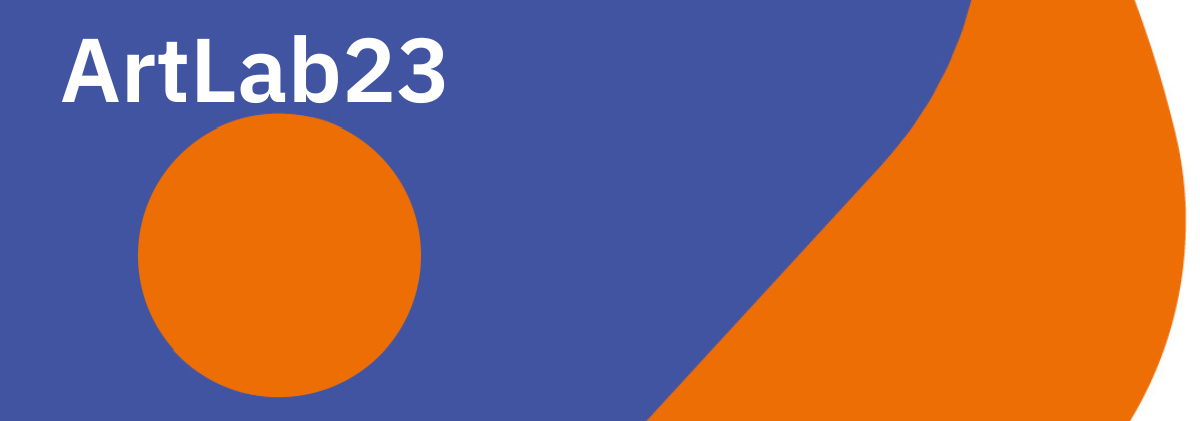
ArtLab. Territori, Cultura, Innovazione è l’appuntamento indipendente italiano dedicato all’innovazione delle politiche, dei programmi e delle pratiche culturali, promosso, a partire dal 2006, da Fondazione Fitzcarraldo che coinvolge reti europee, agenzie e istituti culturali di diversi Paesi, amministrazioni pubbliche, agenzie territoriali, fondazioni, imprese, istituzioni, università, organizzazioni professionali. Siamo parte della rete e partecipiamo anche all’edizione di Bari / Matera, dal 19 a 21 aprile 2023.
I temi in discussione, individuati insieme alla rete dei partner, sono: il ruolo delle imprese culturali e creative nel PNRR e nelle politiche di coesione, il welfare culturale, le forme di collaborazione e i partenariati pubblico-privati, le condizioni abilitanti per la transizione digitale e le nuove competenze richieste dalle trasformazioni del settore.
In particolare, coerenti ai nostri obiettivi di legacy, i percorsi delle Capitali Europee e Italiane della Cultura sono al centro di due momenti di riflessione sulla valutazione degli impatti, competenze trasversali ed eredità delle esperienze: Capitale Italiana della Cultura. Dal 2015 al 2022: dati, esperienze, cambiamenti, a cura di Fondazione Scuola dei beni e delle attività culturali e, a Matera, ECoC - European Capital of Culture come palestra di competenze complesse per gli attori territoriali, a nostra cura.
Scopri qui il programma completo.
Con la cultura si viaggia
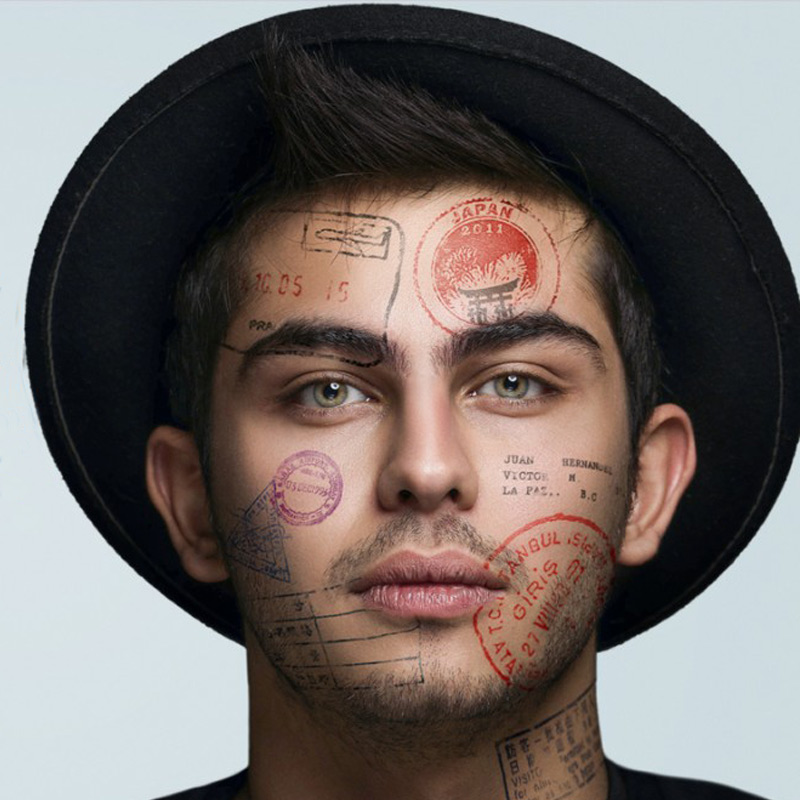
- Immagine condivisione Facebook:
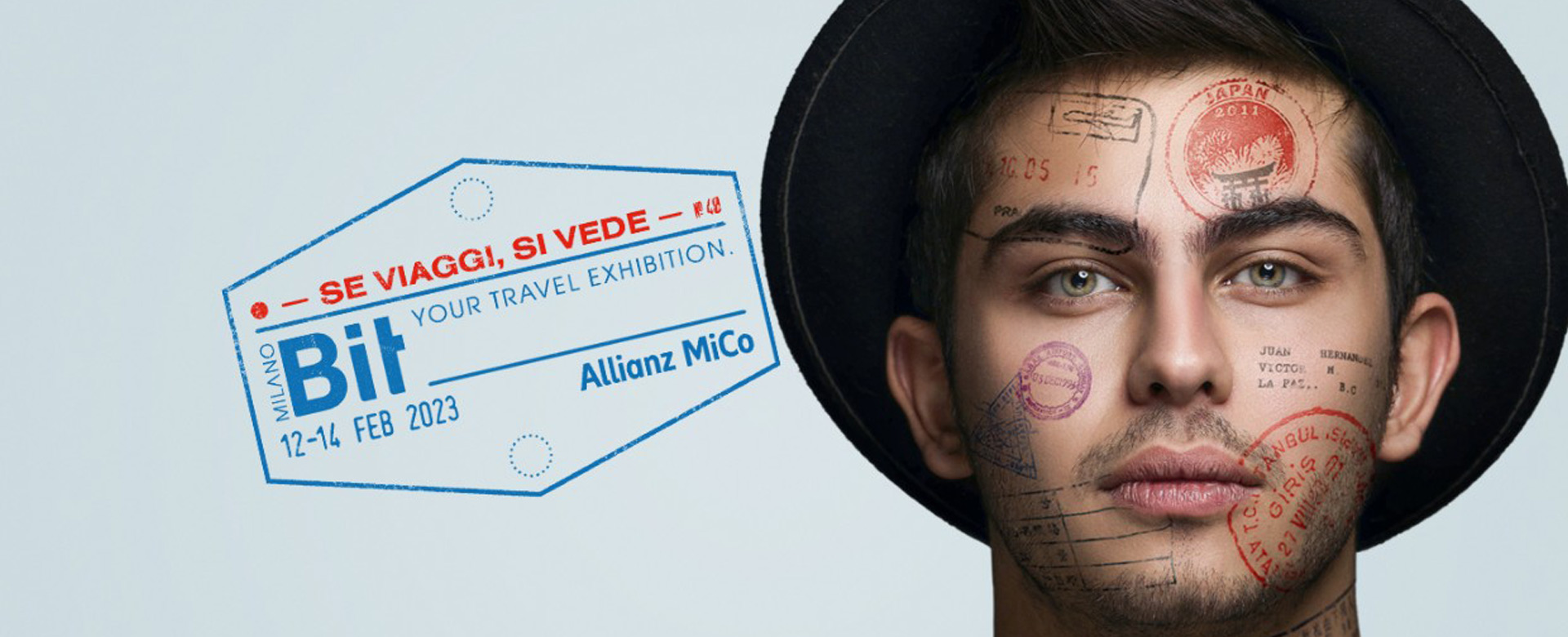
Le sinergie tra Matera e le aree interne della Basilicata sono lo strumento fondamentale per far arrivare il turista culturale dalla Capitale europea della Cultura al resto della regione. È stato questo il focus al centro dell’incontro promosso insieme alla Regione Basilicata e al Comune di Matera alla Bit di Milano all’interno dello spazio espositivo di Apt Basilicata.
In occasione dell'incontro abbiamo presentato i temi e le progettualità su cui intendiamo lavorare in questo nostro nuovo corso, creando connessioni fra Matera e il resto della regione: il cambiamento climatico e la sostenibilità ambientale, anche in relazione alla fragilità dei nostri territori; l’innovazione e la digitalizzazione, attraverso la creazione di un grande archivio di memorie di quanti sono andati via dalla Basilicata; le residenze artistiche come attivatori di processi di co-creazione nelle aree interne e al contempo come strumento di ingaggio del visitatore.
Ripartendo dall’eredità di Capitale Europea della Cultura 2019 ci proponiamo di estendere una proposta culturale multiforme e contemporanea non solo agli abitanti ma anche ai visitatori della regione. Intendiamo ingaggiare il turista proponendo un’accoglienza ispirata dalla creatività. Insieme ad APT Basilicata proveremo a spingere quindi il loro percorso di visita fino alle aree interne ricche di iniziative artistiche orientate a chi vuol viaggiare insieme alla cultura.
Un programma animato dalle arti performative farà conoscere ai turisti un grande poeta lucano come Rocco Scotellaro, nel centenario della sua nascita, provando a scoprire insieme a chi viaggia gli altri scrittori italiani con un legame profondo con le città e il territorio in cui hanno profuso il loro impegno civico e artistico. La diaspora dei lucani del mondo alimenta oggi il turismo delle radici in Basilicata e apriremo un canale rivolto a chi mantiene un legame profondo con la nostra regione, una specie di grande archivio digitale della diaspora.
Sul binomio arte e aree interne, due delle realtà virtuose attive in Basilicata presentate alla Bit sono state l’associazione Artepollino, che lavora nel Parco nazionale del Pollino, e il festival di arte pubblica AppARTEngo a Stigliano (MT).
In particolare, il presidente di Artepollino Gaetano Lofrano, ha spiegato come l'inserimento di opere d’arte all’interno di un’area protetta quale quella del Parco ha consentito di attrarre un nuovo pubblico, dando la possibilità agli artisti coinvolti di andare alla scoperta del territorio e reinterpretarlo con uno sguardo differente. Pietro Micucci, ideatore di AppARTEngo, ha invece raccontato il festival come un manifesto del senso di appartenenza, capace di mostrare la Basilicata più accogliente e creativa. Attraverso lo sguardo di artisti nazionali e internazionali, si è puntato a ricostruire un’identità locale che si era ormai smarrita, riuscendo a reinterpretare le proprie radici.
Insieme è la parola chiave!





